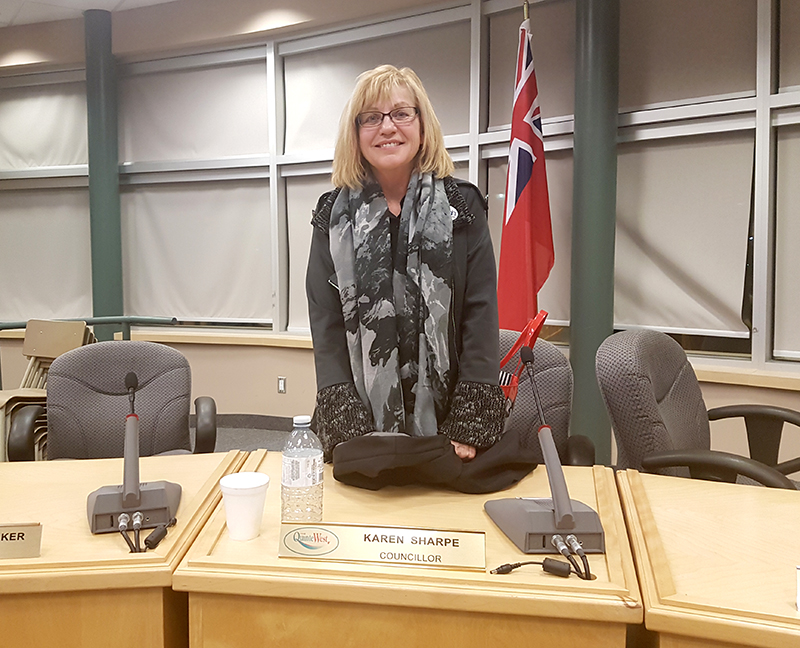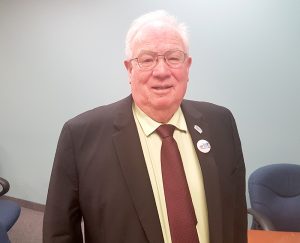
Coun. Karen Sharpe says a business plan and more research need to be done before a hospice in Quinte West can be confirmed. Photo by Makala Chapman, QNet News
By Makala Chapman [1]
TRENTON – Quinte West [2] is moving closer to having a hospice.
On Monday evening, council approved a motion to move $1 million from its Sidney Fund, which normally provides money for the purchase of industrial land, to the hospice project fund.
But the plan to build the palliative care [3] facility is still in the preliminary stage, says Coun. Karen Sharpe.
“There are a lot of meetings that need to be done in terms of a business plan for capital and operating,” she told QNet News. “There’s no decision made to build it. It’s really to start allocating some resources.”
The councillor, who is also a member of Quinte West’s Residential Hospice Working Group, will be speaking with Hospice Quinte [4] as well as the Local Health Integration Network [5] to seek their expertise in early March.
Quinte West’s chief administrative officer, Charlie Murphy, will also be meeting with community partners to discuss a business and operating plan for the hospice.
“These partners are informal, as there are no formal partnerships at this time,” said Sharpe.
It won’t be until the research phase is completed that it will be known for sure if building a hospice in Quinte West is even a viable option, she said.
Quinte West Mayor Jim Harrison said there has been an expressed need for a hospice in his community.

Quinte West’s mayor, Jim Harrison, says he and council will work with community partners to help establish a hospice for those in need. Photo by Makala Chapman, QNet News
“From what I am gathering, there is an absolute need for a hospice here,” he said. “It certainty looks like there are people who would use it.”
The mayor noted that residents of Quinte West have been using the hospice facilities in Picton [6] and Warkworth [7].
Palliative care offered by hospitals can be expensive and is not always a good option for those seeking end-of-life care, said Harrison.
“We could build something that would meet (people’s) needs in a more economical way,” he said. “It’s a way that people can die in dignity, as there are people who don’t have their own home.”
Sharpe said it isn’t yet known how big the facility might be.
“There’s various models that we would need to look at, because they all depend on the finances,” she said. “We really need to do a lot of research.”